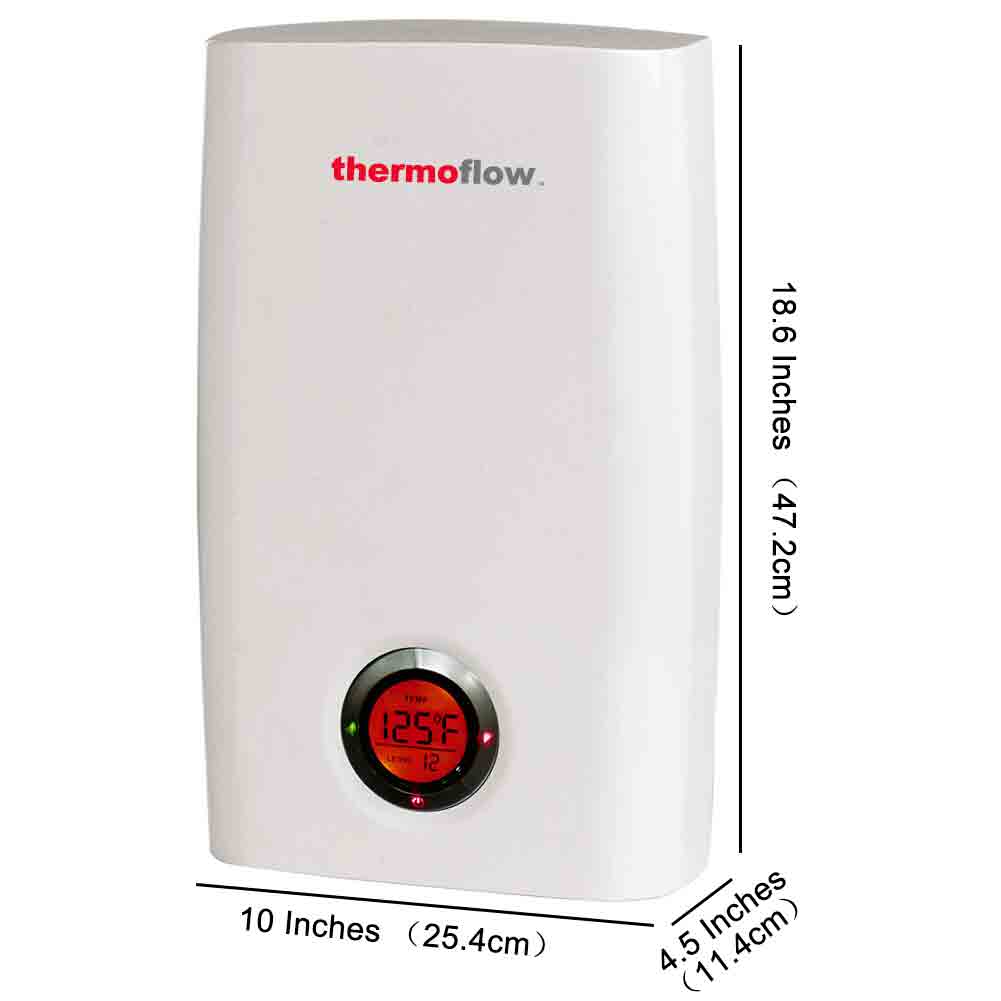The "Eco-Friendly Home Upgrades: Examining the Environmental Impact of Tankless Water Heaters" PDFs

Tankless Water Heaters vs. Traditional Water Heaters: Which is Best for You?
When it comes to choosing a water heating system for your house, there are actually two main options to take into consideration: tankless water heating systems and conventional water heaters. While both styles offer the very same function of providing scorching water, they differ in terms of functions, effectiveness, and cost. In this post, we are going to contrast tankless water heaters and typical water heating systems to help you calculate which one is correct for you.
Traditional Water Heaters:
Standard water heating systems, additionally known as storing storage tank water heating systems, have been the typical choice for several years. These systems feature a sizable storage space container that holds and regularly heats a details amount of water. When hot water is needed in your home, it is attracted coming from the best of the storage tank and switched out along with chilly water that is then heated.
One of the perks of traditional water heating units is their lower upfront expense compared to tankless styles. They are commonly extra cost effective to buy and put up originally. Additionally, if you have an existing traditional water heating system unit in your property, substituting it with a comparable style may be less complicated and expensive.
An additional advantage of typical water heating systems is their potential to deliver very hot water at a constant circulation cost throughout your property. The storage space containers make certain that there is actually always very hot water conveniently readily available when you need to have it. This can easily be particularly useful for bigger homes or homes with various bathrooms.
However, there are some setbacks to take into consideration along with conventional water heaters as well. One considerable downside is their electricity consumption. Since these systems consistently heat up and save a big volume of warm water even when not in make use of, they can easily lead to higher electrical costs over time.
In addition, typical devices have limited capability based on the size of their storage space storage tanks. If you exceed this capacity through making use of too much warm water simultaneously or if the saved very hot wate
r functions out, you may possess to hang around for the container to fill up and reheat the water before it comes to be readily available once again. This may be inconvenient, especially in the course of optimal consumption opportunities.

Tankless Water Heaters:
Tankless water heating systems, also recognized as on-demand water heaters, have obtained recognition in recent years due to their energy efficiency and small design. Unlike standard water heating units, tankless versions do not save hot water. As an alternative, they warm water instantly as it circulates by means of the unit when a very hot water water faucet is turned on.
One of the principal perks of tankless water heating systems is their energy efficiency. Since they merely warm water when it is required, they remove standby electricity reduction linked along with conventional devices. I Found This Interesting indicates that you can possibly save cash on your power costs by reducing energy intake.
An additional advantage of tankless styles is their endless supply of warm water. As long as the system is correctly sized for your household's demands, you can delight in a continual circulation of hot water without worrying regarding functioning out or waiting for a storage space tank to refill. This produces tankless devices best for homes along with high warm water needs or those that need synchronised make use of in numerous areas.
Furthermore, tankless versions take up less space compared to traditional devices. They are usually wall-mounted and sleek in dimension, making it possible for for adaptable installation possibilities also in tight spaces such as energy wardrobes or small condos.
Nonetheless, there are actually some factors to always keep in thoughts when considering a tankless water heating unit. The upfront expense of these devices tends to be higher than traditional designs due to their enhanced modern technology and installment requirements. While the long-term cost savings from decreased power usage may balanced out this first assets over opportunity, it's important to element in your spending plan and future financial savings possibility.
On top of that, effective measurements is important when picking a tankless device. If undersized for your home's needs, you may experience insufficient hot water circulation costs or inconsistent temperatures. On the various other hand, oversizing can result in needless electricity usage and much higher upfront expense.
Final thought:
In the controversy between tankless water heating systems and typical water heating systems, it eventually happens down to your details requirements and choices. Standard water heating units give lower upfront price and a steady source of hot water, while tankless models give power performance, limitless scorching water, and space-saving advantages.
If you possess limited room, a higher demand for hot water, or are looking to lower power usage in the long run, a tankless water heating unit may be the correct option for you. On the various other hand, if upfront price is a significant element and you value the convenience of steady hot water flow fees, a traditional water heating unit may be much more ideal.
Look at your family's measurements, scorching water consumption patterns, pricing restraints, and long-term targets when producing this necessary decision. Consulting along with a qualified plumbing professional can easily also help determine which kind of water heating system is most ideal suited for your particular conditions.
Essentially, deciding on between tankless and traditional water heating units is about finding the equilibrium between cost-effectiveness and efficiency that straightens along with your distinct necessities.
